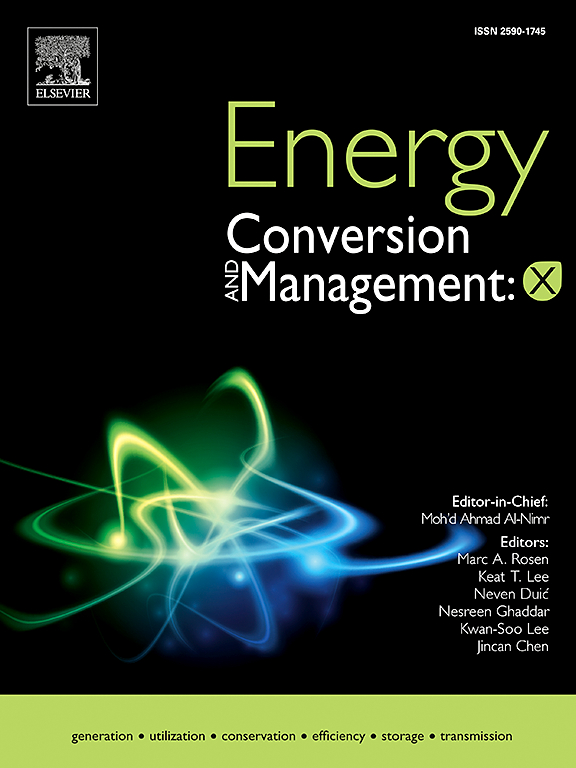受降解影响的水电解系统的成本优化替代策略
IF 7.6
Q1 ENERGY & FUELS
引用次数: 0
摘要
使用水电解系统降低绿色制氢项目成本的一个关键因素是尽量减少电解槽堆的退化,因为这会影响电解槽堆的使用寿命,从而影响其更换频率。为了更好地理解电池堆降解的经济学,我们提出了一种线性优化方法,以最大限度地降低绿色氢供应链的成本,包括具有降解模型的电解槽。通过计算依赖于可变退化阈值的氢的平准化成本,可以确定堆栈替换的成本最优时间。我们进一步研究了这种最佳更换时间如何受到诸如降解规模、降解和能源需求的负载依赖性以及电解槽成本等敏感性的影响。所确定的主要灵敏度退化尺度的变化导致了堆栈更换成本的最佳时间差异高达9年,分别是堆栈的使用寿命。因此,更好地了解降解影响对于降低项目成本至关重要,这反过来又将支持氢市场的持续增长。本文章由计算机程序翻译,如有差异,请以英文原文为准。
Cost-optimized replacement strategies for water electrolysis systems affected by degradation
A key factor in reducing the cost of green hydrogen production projects using water electrolysis systems is to minimize the degradation of the electrolyzer stacks, as this impacts the lifetime of the stacks and therefore the frequency of their replacement. To create a better understanding of the economics of stack degradation, we present a linear optimization approach minimizing the costs of a green hydrogen supply chain including an electrolyzer with degradation modeling. By calculating the levelized cost of hydrogen depending on a variable degradation threshold, the cost optimal time for stack replacement can be identified. We further study how this optimal time of replacement is affected by sensitivities such as the degradation scale, the load-dependency of both degradation and energy demand, and the costs of the electrolyzer. The variation of the identified major sensitivity degradation scale results in a difference of up to 9 years regarding the cost optimal time for stack replacement, respectively lifetime of the stacks. Therefore, a better understanding of the degradation impact is imperative for project cost reductions, which in turn would support a proceeding hydrogen market ramp-up.
求助全文
通过发布文献求助,成功后即可免费获取论文全文。
去求助
来源期刊

Energy Conversion and Management-X
Multiple-
CiteScore
8.80
自引率
3.20%
发文量
180
审稿时长
58 days
期刊介绍:
Energy Conversion and Management: X is the open access extension of the reputable journal Energy Conversion and Management, serving as a platform for interdisciplinary research on a wide array of critical energy subjects. The journal is dedicated to publishing original contributions and in-depth technical review articles that present groundbreaking research on topics spanning energy generation, utilization, conversion, storage, transmission, conservation, management, and sustainability.
The scope of Energy Conversion and Management: X encompasses various forms of energy, including mechanical, thermal, nuclear, chemical, electromagnetic, magnetic, and electric energy. It addresses all known energy resources, highlighting both conventional sources like fossil fuels and nuclear power, as well as renewable resources such as solar, biomass, hydro, wind, geothermal, and ocean energy.
 求助内容:
求助内容: 应助结果提醒方式:
应助结果提醒方式:


